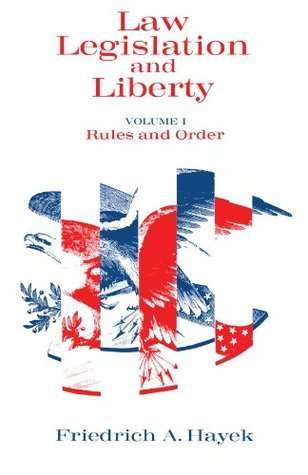What do you think?
Rate this book


191 pages, Paperback
First published October 1, 1973
این اندیشه که هر قانونی میتواند و باید محصول ابداع آزادانهی قانونگذار باشد، تصوری که امروزه به طور گسترده رواج دارد، واقعا غلط است، این اندیشه، محصولِ اشتباهِ خردگراییِ ساختگراست.
انسانها فقط زمانی میتوانند بدون تنازع با یکدیگر از اطلاعاتشان جهت رسیدن به اهدافشان استفاده کنند که بتوان مرزهای روشنی بین قلمروهای مربوط به عمل آزادانهی آنها ترسیم کرد. این مفهوم شالودهی هر تمدن شناختهشدهای است. مالکیت به مفهوم وسیع کلمه دربرگیرندهی نه تنها اشیای مادی، بلکه (همچنان که جان لاک آن را تعریف میکرد) «زندگی، آزادی و دارایی» هر فرد است. این مفهوم از مالکیت، تنها راه حلی است که انسانها برای مسئلهی آشتی دادنِ آزادیِ فردی با وضعیت صلحآمیز، تاکنون کشف کردهاند. قانون، آزادی، و مالکیت سه گانهای تفکیکناپذیرند.
لیبرالیسم، کنترل عامدانهی نظم کل جامعه را محدود به اِعمال قواعدِ کلیای میکند که جهت شکلگیری نظمِ خودجوش لازمند. نظمی که جزئیاتش قابل پیشبینی نیست.